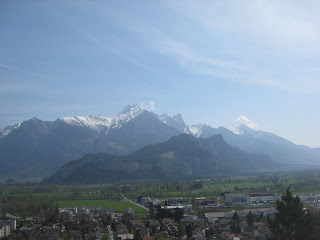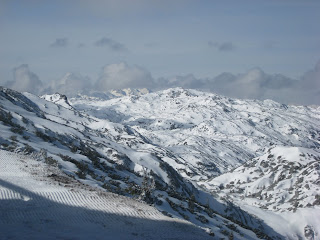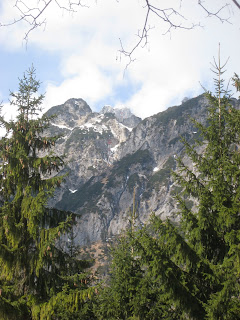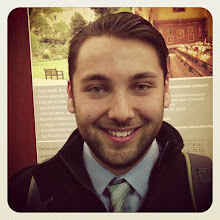




I also spent a lot of time while I was traveling the Alps reflecting on my entire travel experience, and what it really means to travel. Up until that trip, I had traveled to many different cities, in order to see churches and museums, to learn about history, people, and their customs. It struck me that the best of these trips, both by my standards and by general tourist standards, were the cities with the most beautiful churches or the best museums, both obstinately human creations. Even those with wonderful city parks were not truly natural, as most of those parks are carefully planned and maintained. I wondered why I would want to travel at all, why I needed to see the old-yet-beautiful buildings, and why it all mattered in the end. Parts of my Alp-trip were completely different, spent more or less enjoying nature’s creations of mountains and valleys, lakes and trees. I don’t know how I should compare these disparate experiences, or even if I should. I love churches and museums, but I also love mountains and lakes. The former represent the highest form of western consciousness regarding the importance, and indeed relationship between, truth and beauty. However, the latter, the mountains and lakes, are physical and genuine manifestations of this relationship. I have spent a lot of time looking at beautiful things in beautiful places, and although I enjoy them profoundly, I still don’t understand why I should, or even why they seem so imperative to me.
Perhaps they are special, at least in the European context, because we have recorded histories of events that have occurred, both in cities and the mountains, often hundreds of years ago. Maybe this is where the two come together. Both are beautiful, but in different ways, and both fill the pages of history, and are even, oftentimes, visual reminders of those histories. Perhaps that is why I have enjoyed traveling Europe so much, because I have devoted at least part of my life to learning about what happened here, and now that I am here, I get to see it all. It somehow makes me feel more connected to that past, something I feel is lacking, especially in the Western US. Our history is shorter, our cities less grand, our mountains less historical (though just as beautiful). Hannibal crossed the Alps, not the Rockies. Napoleon dined in Berlin, not Denver, and Queen Elizabeth I is entombed in Westminster, not Colorado. That doesn’t mean less important people lived or live in the territory now known as the United States, just that we can only read about the last 100 years there, and not the last 10,000. I look forward to traveling more, both in Europe and in the US, though I am interested to know how this experience will change the way I travel. I want to see as much of the world as possible, both its churches and its mountains, however I feel Europe is somewhat unique, to me anyway, in that it is connected to a past I identify with. America is culturally a product of Europe, it is a continuation of European history, and returning to Europe is in a sense returning to a long-estranged cousin, one that has moved on from its past, but which hasn’t forgotten it.





